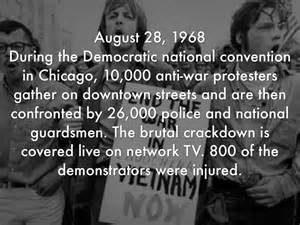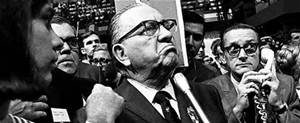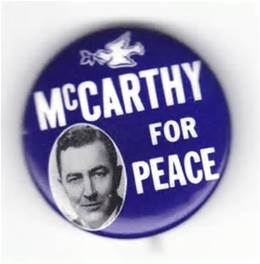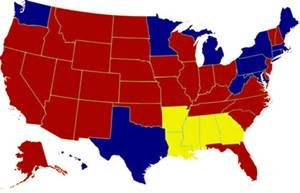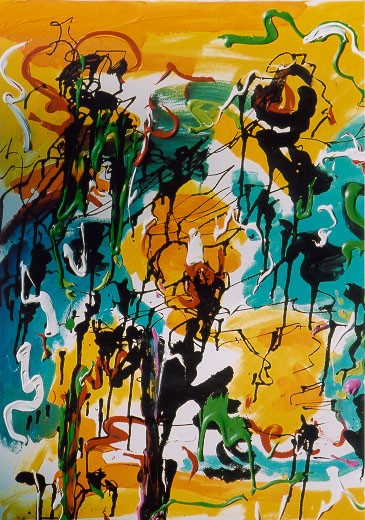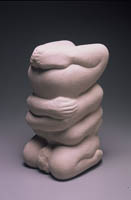Are Dems Inciting a ’68 Chicago Outcome?
The Parallel Between Then and Now Is Striking
At this point in the 2016 presidential election, it now seems that both major parties have selected their “presumptive” nominee: Democrat Hillary Clinton and Donald Trump for the Republicans.
Not so fast.
It sure looks like there are storms brewing in both Cleveland and Philadelphia. For the Republicans (Cleveland), proponents of the #NeverTrump movement, mainly movement conservatives, have apparently not given up their quest to deny Trump the nomination. The most obvious clue: the party’s highest ranking politician, Speaker Paul Ryan, continues to withhold his endorsement.
On the Democratic side, meeting in Philadelphia, Clinton has clinched enough delegates and “superdelegates” to unify the party at the convention. But wait. Bernie Sanders seems far from throwing in the towel. He continues to challenge the whole nominating process and vows to make changes on the convention floor. Despite daunting mathematical odds, Sanders has not fallen in line.
That sure sounds a lot like Chicago in 1968.
“The Whole World’s Watching”
Before we get into the political bloodletting that draws striking parallels between Chicago and today’s Democratic party divide, let’s take a glimpse at some of famous episodes of Chicago ’68:
- Our country was already traumatized by a rapid-fire series of events that year: President Johnson’s March 31 announcement that he would not seek reelection; the assassination of Martin Luther King, Jr. on April 14; and on June 5, Senator Robert F. Kennedy’s assassination after winning the California primary as a “peace” candidate. Riots occurred in over 100 US cities that summer.
- Inspired by the Democratic party showdown between “establishment” and anti-Vietnam war candidates, a reported 10,000 protesters showed up in Chicago for the anti-war cause. Haynes Johnson wrote in The Smithsonian, “The [convention] hall was surrounded by a steel fence topped with barbed wire…The main doors, modeled after a White House portico, had been bulletproofed.” All of over Chicago, TV cameras captured demonstrators clashing with a reported 11,900 Chicago police, 7500 Illinois National Guardsmen and 1,000 Secret Service agents over the four-day span.
- Chicago police made 589 arrests and counted 119 police and 100 protesters injured. A Chicago grand jury indicted eight prominent anti-war activists for inciting a riot. The “Chicago 8,” whose ranks included Tom Hayden, Abbie Hoffman and David Dellinger, would get their 15 minutes and more.
- The “police riot,” as it was described by the media, would tarnish the legacy of one of the last of the old-style machine politicians, Chicago Mayor Richard J. Daley. It was Daley who unleashed and encouraged the non-compromising brute of law enforcement. On the convention floor, the mayor, who led Chicago for 21 years, reportedly favored Ted Kennedy and aggressively made his opinion known about peace candidates.
“Hell No, We Won’t Go”
Of course it was the Vietnam war that defined the Democratic divide in 1968. With President Johnson, who was responsible for the massive troop build-up, declining to run, it opened the door for anti-war candidates Robert Kennedy and Eugene McCarthy. When Kennedy was felled by an assassin’s bullet, the nomination became a horserace between Hubert H. Humphrey, Johnson’s vice president and the perceived “establishment” candidate, and McCarthy.
Over 80 percent of the Democratic primary votes were cast for anti-war candidates, primarily McCarthy or Kennedy (George McGovern got some too). Vice President Humphrey entered the race after Johnson dropped out, but didn’t compete in any primaries. Instead, Humphrey compiled his delegates in caucus states, which were then tightly controlled by party leaders.
Humphrey came to Chicago with the lead in the delegate count. The vice president faced major resistance from anti-war delegates, credentials fights and a growing cry to nominate RFK’s younger brother, Ted Kennedy. Delegations from 15 states staged an open revolt to try to unseat Humphrey delegates. A “peace plank” almost made it into the party platform, but the Humphrey forces, with help from the president and Mayor Daley, prevailed once again. The final delegate count wasn’t even close: the Humphrey/Muskie ticket tallied 1,760 delegates to McCarthy’s 601.
Bernie Sanders Can Learn From Eugene McCarthy
Obviously, Eugene McCarthy was frustrated by the results. he made it known that he felt that “party regulars sewed up” the nomination for Humphrey. Weeks, then months passed, and McCarthy still hadn’t endorsed his party’s ticket. All eyes were on him.
Humphrey could have used McCarthy’s support, especially among anti-war Democrats. In two states where anti-war fervor was widespread, Wisconsin and California, McCarthy on the stump could have flipped the election. At a time when southerners still voted for Democrats, Humphrey had to compete with third-party candidate George Wallace, who would eventually win five southern states. According to Politico,
In some instances, McCarthy supporters actively opposed Humphrey. At an anti-Humphrey protest in New York on Labor Day, one anti-war activist who supported McCarthy told a reporter, “I’ve gotten sick of working with the Establishment. It doesn’t work. I mean what have we done in the last year? Just what have we done?”
(Boy, does that sound familiar.)
McCarthy “finally and reluctantly” endorsed Hubert Humphrey on October 29, about a week before the election. He told supporters a few days later, “I made the switch to Humphrey and I think you ought to suffer with me.” It was too little and too late.
The Presidential Election of 1968
The election of ’68 just happened to be one of the closest in US history. It gave our country Richard Nixon, and, well…you know how that turned out. Nixon won 31,785, 480 popular votes (43.4 percent) to Humphrey’s 31, 275,166 (42.7 percent). The electoral college went to Nixon, 301-191. George Wallace gathered 46 electoral college votes with wins in Alabama, Arkansas, Georgia, Louisiana and Mississippi.
How many anti-Vietnam war voters stayed home on election day? That’s something to think about.

